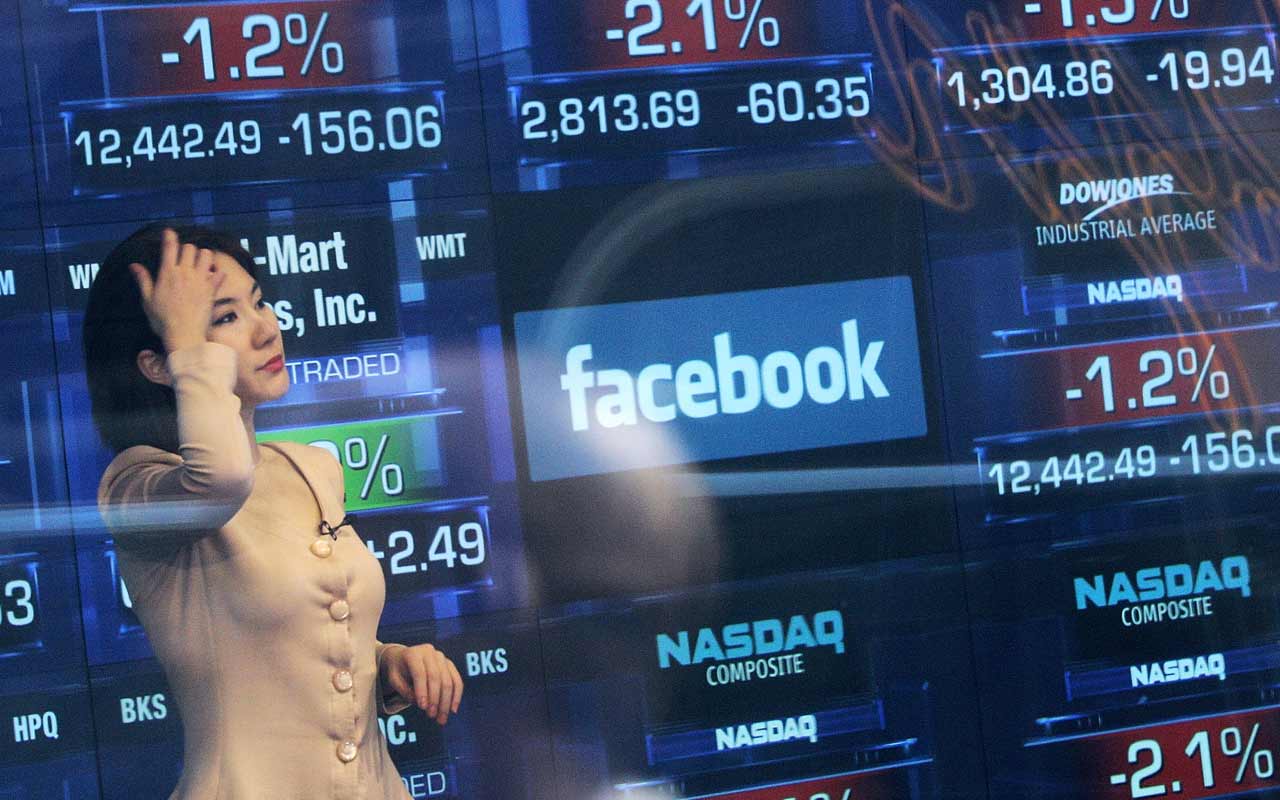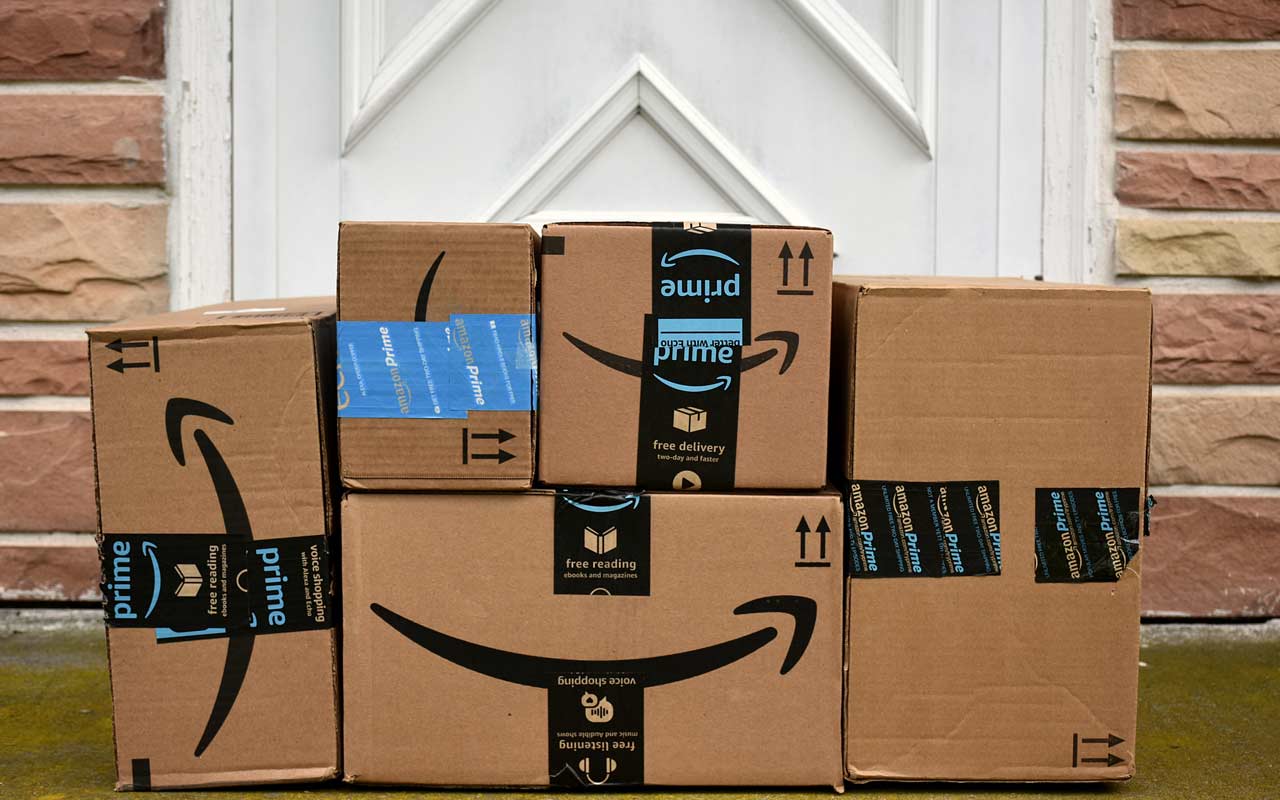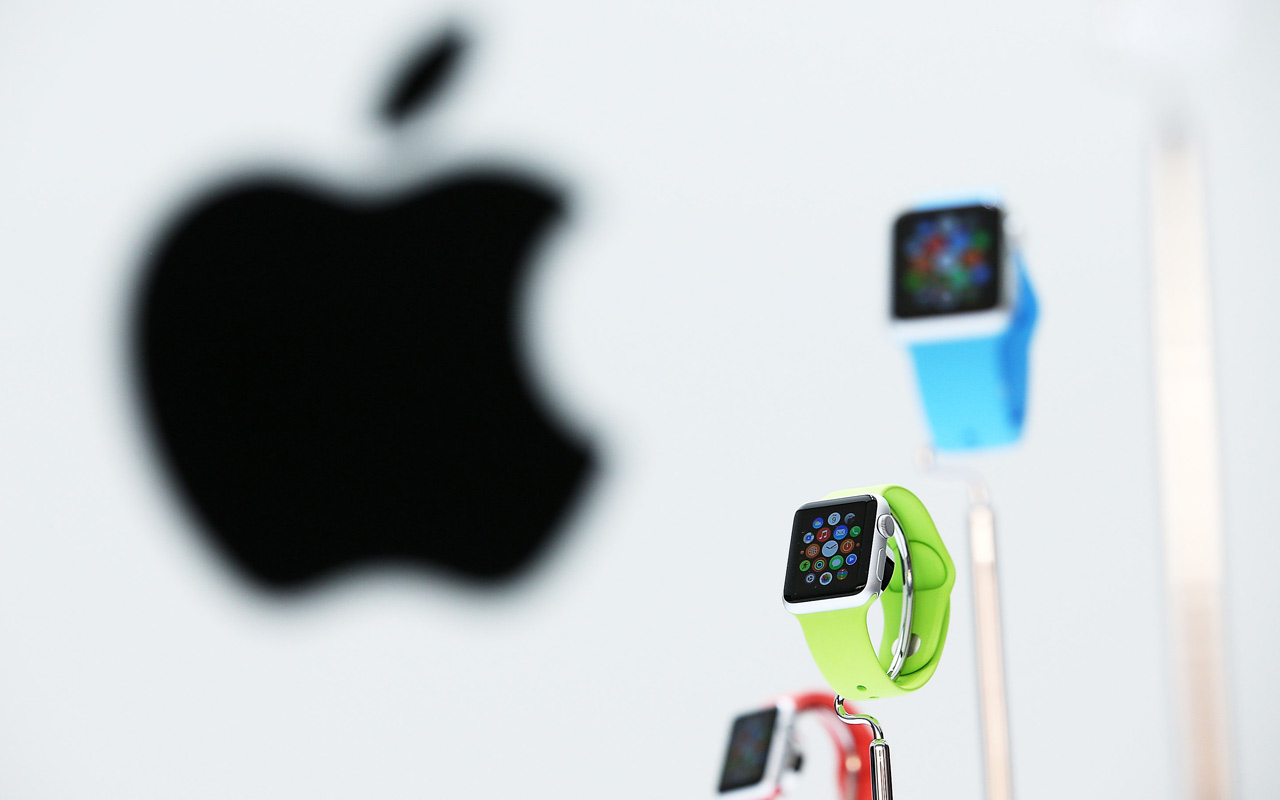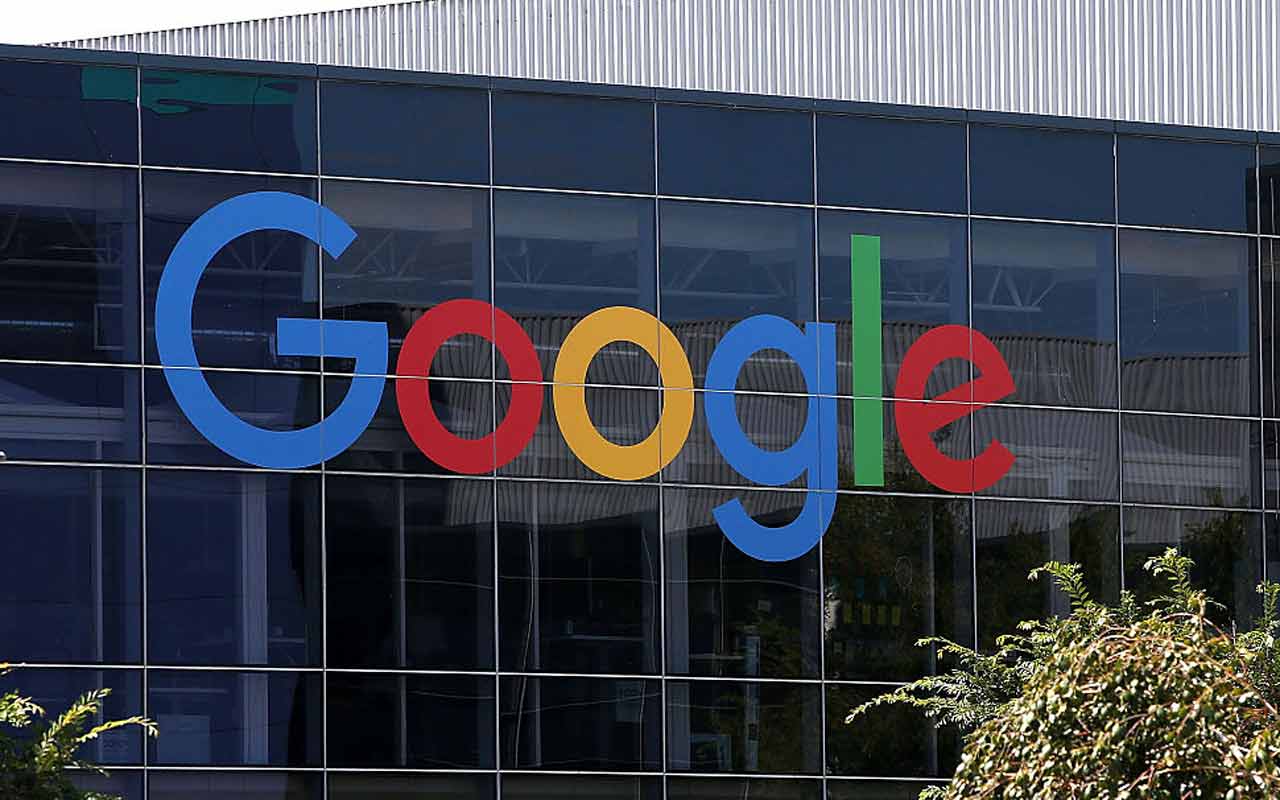FAANG Stocks: Buy, Sell or Hold
Even if you haven’t heard of the acronym, you’ve surely heard plenty about FAANG companies.


Profit and prosper with the best of Kiplinger's advice on investing, taxes, retirement, personal finance and much more. Delivered daily. Enter your email in the box and click Sign Me Up.
You are now subscribed
Your newsletter sign-up was successful
Want to add more newsletters?

Delivered daily
Kiplinger Today
Profit and prosper with the best of Kiplinger's advice on investing, taxes, retirement, personal finance and much more delivered daily. Smart money moves start here.

Sent five days a week
Kiplinger A Step Ahead
Get practical help to make better financial decisions in your everyday life, from spending to savings on top deals.

Delivered daily
Kiplinger Closing Bell
Get today's biggest financial and investing headlines delivered to your inbox every day the U.S. stock market is open.

Sent twice a week
Kiplinger Adviser Intel
Financial pros across the country share best practices and fresh tactics to preserve and grow your wealth.

Delivered weekly
Kiplinger Tax Tips
Trim your federal and state tax bills with practical tax-planning and tax-cutting strategies.

Sent twice a week
Kiplinger Retirement Tips
Your twice-a-week guide to planning and enjoying a financially secure and richly rewarding retirement

Sent bimonthly.
Kiplinger Adviser Angle
Insights for advisers, wealth managers and other financial professionals.

Sent twice a week
Kiplinger Investing Weekly
Your twice-a-week roundup of promising stocks, funds, companies and industries you should consider, ones you should avoid, and why.

Sent weekly for six weeks
Kiplinger Invest for Retirement
Your step-by-step six-part series on how to invest for retirement, from devising a successful strategy to exactly which investments to choose.
Even if you haven’t heard of the acronym, you’ve surely heard plenty about FAANG companies. Facebook, Amazon, Apple, Netflix and Alphabet (represented by a “g” because it was formerly Google) have become darlings of the market in recent years, thanks to the companies’ seemingly limitless abilities to sustain high sales and profit growth rates. Over the past five years, the FAANG five have returned 41.6% annualized, on average, compared with a 15.8% annualized gain for Standard & Poor’s 500-stock index.
But today, the shares look awfully pricey. While the S&P 500 trades for about 20 times estimated earnings for the next four quarters, FAANGs sport an average price-earnings ratio of 69.
As FAANG bears like to point out, the market has gone weak-kneed for growth stocks before, with disastrous results. In the mid 1960s, the Nifty Fifty were high-flying shares of growing companies that seemingly could do no wrong. The stocks soared to excessive price-earnings ratios into the early 1970s, then crashed and burned during the 1973–74 bear market. As Jeremy Siegel, professor of finance at the Wharton School, has put it, the Nifty Fifty demonstrated that investors shouldn’t “pay any price” for growth.
We’re not FAANG bears, but we do think investors should approach the stocks with caution. We’ve rated each stock “buy,” “sell” or “hold.” Only one stock, Apple, merits a buy rating in our view, and even that comes with a caveat: Chances are you already hold a large position in the stock through mutual funds, so be careful not to overload your portfolio.
Data is as of November 13, 2017. Price-earnings ratio are based on estimates for the next four quarters. Click on ticker-symbol links in each slide for current share prices and more.

Facebook: HOLD
The world’s largest social network may be facing political woes, as lawmakers scrutinize Russian abuse of the platform leading up to the 2016 election. But Facebook (FB) has a track record of confronting hurdles head-on. For example, in early 2012 the company acknowledged that it had missed the boat on smartphones—more users were accessing Facebook on their phones, but the company wasn’t running ads on its phone app or mobile site. By the end of 2013, mobile advertising accounted for 53% of total ad revenue, and by the third quarter of 2017, mobile ads accounted for 88% of total revenue of $10.3 billion. Chris Carter, co-manager of the Buffalo Growth fund, says advertisers see spending on Facebook ads as a necessity. “It has nearly an unrivaled audience,” he says, with more than two billion active users. Analysts on average expect Facebook to sustain 27% profit growth over the next five years. That said, the stock is fairly valued at the current price.

Amazon.com: HOLD
Amazon.com (AMZN) is already the reigning king of online shopping, but its ambitions don’t end there. The company holds the number-one market share position in “cloud computing,” in which businesses and individuals rent space on Amazon’s servers to access their data online. With its recent acquisition of Whole Foods, the company seems to be betting on a future of online-ordered groceries. And some industry analysts have stoked speculation that the secretive company is planning a move into the pharmacy industry. Amazon’s “land grab” strategy, as Amana Growth fund co-manager Scott Klimo describes it, requires high ongoing investment spending, which means reported profits could be greatly understating the company’s potential profitability. “Amazon will be able to turn on profitability when it wants to,” Klimo says. However, the land-grab phase could last a long time, and retail sales and groceries are hardly known as high-margin businesses. At a 181 P/E, investors should take a pause on the stock.

Apple: BUY
- Apple (AAPL), the most mature company of the five, is the only FAANG to pay a dividend and the only value stock on the list, with a P/E of 16. Although iPads, Mac computers and sales of services still represent important contributors to the business, Apple is mainly a phone company, with the iPhone accounting for 55% of sales during the company’s most recent quarter. But it’s not just the phone that consumers pay a premium for—it’s the suite of apps and media and integration with other Apple products. “It’s a painful process for an Apple customer to switch to an Android-based phone,” says Carter. And consider that if you adjust its market capitalization for the company’s $269 billion hoard of cash and securities, then Apple’s P/E falls to just 11.

Netflix: SELL
Netflix (NFLX) shares have soared 76.6% annualized over the past five years, as subscribers have grown at a roughly 30% annual clip, to 109 million worldwide. But winning subscribers in the first place is only part of the battle—Netflix also must hold on to those subscribers as competitors launch new services and pull content from Netflix’s platform. In August, for example, Walt Disney announced that it would stop licensing films to Netflix and would instead launch its own streaming service. Netflix knows it needs to fight to hold on to customers’ eyeballs, so it has been investing massive sums in producing its own original high-quality content. Netflix’s business strategy is reasonable, but at a 94 P/E, investors are underestimating the ferociousness of its competition. Consider locking in profits at the stock’s current price.

Alphabet (formerly Google): HOLD
Alphabet’s (GOOGL) ancillary business lines are full of tech-sector buzzwords: self-driving cars, cloud computing, artificial intelligence. But at its core, Alphabet is an ad company. Advertising revenue accounted for 88% of total sales of $22.5 billion in the third quarter of 2017. The big-picture investment rationale for Alphabet goes something like this: As more people around the world spend more time online—Googling things, watching YouTube videos and checking their Gmail accounts—Alphabet sells more ads. But, says Gregg Fisher, founder of investment advisory firm Gerstein Fisher, “like all companies closely tied to a specific revenue stream, there is a significant risk to concentration.” The company’s likely growth rates are already baked into its stock price.
Profit and prosper with the best of Kiplinger's advice on investing, taxes, retirement, personal finance and much more. Delivered daily. Enter your email in the box and click Sign Me Up.

-
 Nasdaq Leads a Rocky Risk-On Rally: Stock Market Today
Nasdaq Leads a Rocky Risk-On Rally: Stock Market TodayAnother worrying bout of late-session weakness couldn't take down the main equity indexes on Wednesday.
-
 Quiz: Do You Know How to Avoid the "Medigap Trap?"
Quiz: Do You Know How to Avoid the "Medigap Trap?"Quiz Test your basic knowledge of the "Medigap Trap" in our quick quiz.
-
 5 Top Tax-Efficient Mutual Funds for Smarter Investing
5 Top Tax-Efficient Mutual Funds for Smarter InvestingMutual funds are many things, but "tax-friendly" usually isn't one of them. These are the exceptions.
-
 Nasdaq Leads a Rocky Risk-On Rally: Stock Market Today
Nasdaq Leads a Rocky Risk-On Rally: Stock Market TodayAnother worrying bout of late-session weakness couldn't take down the main equity indexes on Wednesday.
-
 Stocks Make More Big Up and Down Moves: Stock Market Today
Stocks Make More Big Up and Down Moves: Stock Market TodayThe impact of revolutionary technology has replaced world-changing trade policy as the major variable for markets, with mixed results for sectors and stocks.
-
 Small Caps Step Up, Tech Is Still a Drag: Stock Market Today
Small Caps Step Up, Tech Is Still a Drag: Stock Market TodayEarly strength gave way to AI skepticism again as a volatile trading week ended on another mixed note.
-
 AI Unwind Takes 2% Off the Nasdaq: Stock Market Today
AI Unwind Takes 2% Off the Nasdaq: Stock Market TodayMarkets are paying more and more attention to hyperscalers' plans to spend more and more money on artificial intelligence.
-
 Strong Jobs Report Leaves Markets Flat: Stock Market Today
Strong Jobs Report Leaves Markets Flat: Stock Market TodayInvestors, traders and speculators are taking time to weigh the latest labor market data against their hopes for lower interest rates.
-
 Dow Hits New High Ahead of January Jobs Report: Stock Market Today
Dow Hits New High Ahead of January Jobs Report: Stock Market TodayA weak reading on December retail sales was in focus ahead of Wednesday's delayed labor market data.
-
 Tech Stocks Fuel Strong Start to the Week: Stock Market Today
Tech Stocks Fuel Strong Start to the Week: Stock Market TodayThe blue-chip Dow Jones Industrial Average extended its run above 50,000 on Monday and there are plenty of catalysts to keep the 30-stock index climbing.
-
 Dow Adds 1,206 Points to Top 50,000: Stock Market Today
Dow Adds 1,206 Points to Top 50,000: Stock Market TodayThe S&P 500 and Nasdaq also had strong finishes to a volatile week, with beaten-down tech stocks outperforming.
